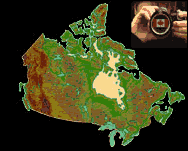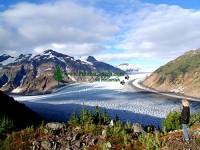 |
|
Canada is the second largest country in the world in size with 10 Provinces and 3 Terrorities; its southern and northwestern edges touch the United States of America. Canada covers 6 time zones – the west coast, the prairies, the east coast and the Maritimes; The 5 great lakes between Canada and the United States have the greatest amount of fresh surface water (about 16%) on earth. The United Nations ranked Canada the best country in the world in which to live for eight consecutive years. The largest provincial cities are Toronto, Montreal, Vancouver, Victoria, Edmonton, Calgary, Winnipeg, Saskatoon, Regina, Ottawa, Quebec City, Halifax, St. Johns, Fredericton, Charlottetown, Saint John, Whitehorse and Yellowknife. The Canadian landscape offers spectacular Mountains, Prairies, Desert, Arctic Tundra, Glaciers, Valleys, Foothills, Rivers and Lakes.
|
 |
|
 |
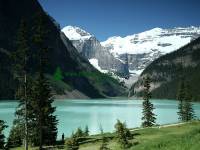 |
|
These special places are gateways to nature, to adventure, to discovery, to solitude. Canada National parks are located on the Atlantic, Pacific and Arctic coasts, across the interior mountains and plains and Great Lakes. They are among Canada's - and the worlds - natural jewels and include World Heritage Sites. These wild places, located in every Canadian province and territory, range from the spectacular Canada’s Rocky mountains and plains, to boreal forests and tundra, to lakes and glaciers, and much more, and they include world-renowned names such as Banff and Jasper.
|
 |
|
 |
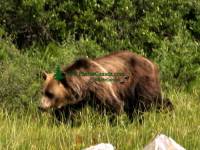 |
|
For many Canadians, wildlife provides powerful images that help define the very essence of our country: the cry of a loon echoing across a lonely lake, the power and majesty of a polar bear, great Vs of Canada geese forging across the sky….. and the powerful Grizzly bear. British Columbia is one of the few places in the world which still has significant populations of both black bears and grizzlies. Experiencing wildlife enriches the lives of all Canadians.
|
 |
|
 |
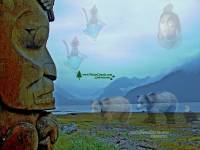 |
|
Native people lived in Canada first - they are the First Nations and the Inuit (Eskimo). The Métis are half-First Nations and half-European. Across Canada, more than 50 aboriginal languages were spoken; these have been classified into 12 families, half of which were spoken only in British Columbia. By far the most widespread were (and still are) Cree, in the Algonkian group, and Inuktitut, an Eskaleut language of the Arctic. |
 |
|
 |
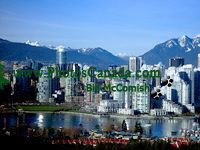 |
|
On July 2, 2003, Vancouver and Whistler was selected to host the 2010 Olympic Winter Games, officially known as the XXI Olympic Winter Games. They are the next winter Olympics and will take place in 2010 in Vancouver and Whistler, British Columbia, Canada. Both the Olympic and Paralympic Games are being organized by the Vancouver Organizing Committee (VANOC).
|
 |
|
 |
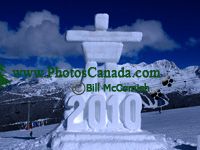 |
|
Canada will host the 2010 Winter Games. Vancouver and Whistler will be home to the XXI Olympic Winter Games from February 12 to 28 and the X Paralympic Winter Games from March 12 to 21. |
|

